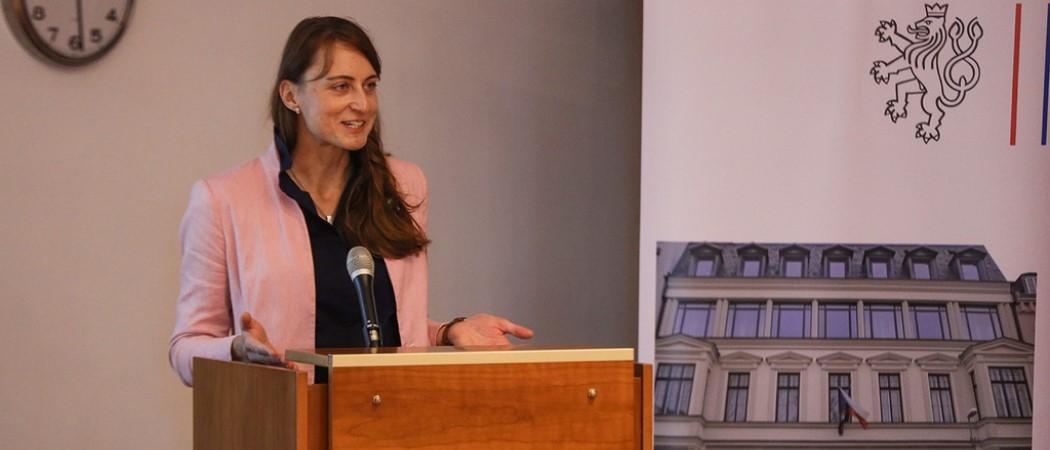Industry and armed forces agree that Europe needs a long-term view of its investment in defence R&D

Radka Konderlová, director general for industry cooperation at Czechia’s defence ministry. Photo: Government of the Czech Republic
The European defence industry is urging policymakers in Brussels and EU capitals to keep up the momentum generated by the war in Ukraine and continue investing in defence R&D.
Radka Konderlová, director general for industry cooperation at Czechia’s defence ministry told delegates at the European Defence and Security summit in Brussels today that the war in Ukraine has nudged governments to take action and acknowledge the importance of an independent European defence industry. Now, more coordinated effort is needed to recover from chronic underinvestment over the past decades. “The European defence industry has suffered from the reduced budgets in the past years,” Konderlová said.
European countries have boosted their overall defence budgets but, according to the European Commission, member states still have to plug a defence spending gap of €70 billion by 2025. In addition, countries are not engaging enough in cooperative projects. “Defence cooperation remains the exception rather than the norm, less than 20% of all investment in defence programmes is conducted in cooperation,” said André Denk, deputy chief executive, European Defence Agency (EDA).
Jan de Waard, a vice admiral in the Dutch armed forces said EU countries need to work more closely together and invest in joint R&D defence projects. Start-ups and SMEs should engage in R&D projects that could have both civilian and military applications, and work more closely with governments and armed forces. “I would call this a golden ecosystem,” said de Waard.
In support of this objective, governments are looking to the EDA and the European Commission to boost defence R&D budgets. “When you talk to industry, this needs really a long term commitment,” de Waard said.
Andrea Nativi, senior vice president at the Italian defence company Leonardo echoed this view. He called for a long term view of defence R&D investments in Europe. “Otherwise we are coping just with immediate needs and not the long term that will augment capability and technology sovereignty,” Nativi said.
Innovation or irrelevance
EDA’s latest annual report shows the agency managed 97 cooperative projects worth a total of €672 million in 2021 alone. Nearly 70 of those projects were related to research and technology.
According to EDA chief executive Jiří Šedivý, the EU needs to continue to invest in defence R&D and to stimulate cross border cooperation on defence-related innovations. The EDA has launched the Hub for EU defence innovation (HEDI) which provides member states with a platform to boost international cooperation in new defence technologies. “The choice for the EU is simple: defence innovation, or defence irrelevance,” Šedivý said in the introduction to the annual report.
The EDA funding for research and technology is in addition to the European Defence Fund (EDF), a new programme run by the European Commission with the aim of coordinating defence R&D investments. In 2021, EDF launched calls for proposals worth €1.2 billion.
Earlier this year, the EDF adopted its third annual work programme, a package of €1.2 billion to support the development of new technologies and capabilities. The calls are expected to be open for submissions by 15 June.





 A unique international forum for public research organisations and companies to connect their external engagement with strategic interests around their R&D system.
A unique international forum for public research organisations and companies to connect their external engagement with strategic interests around their R&D system.